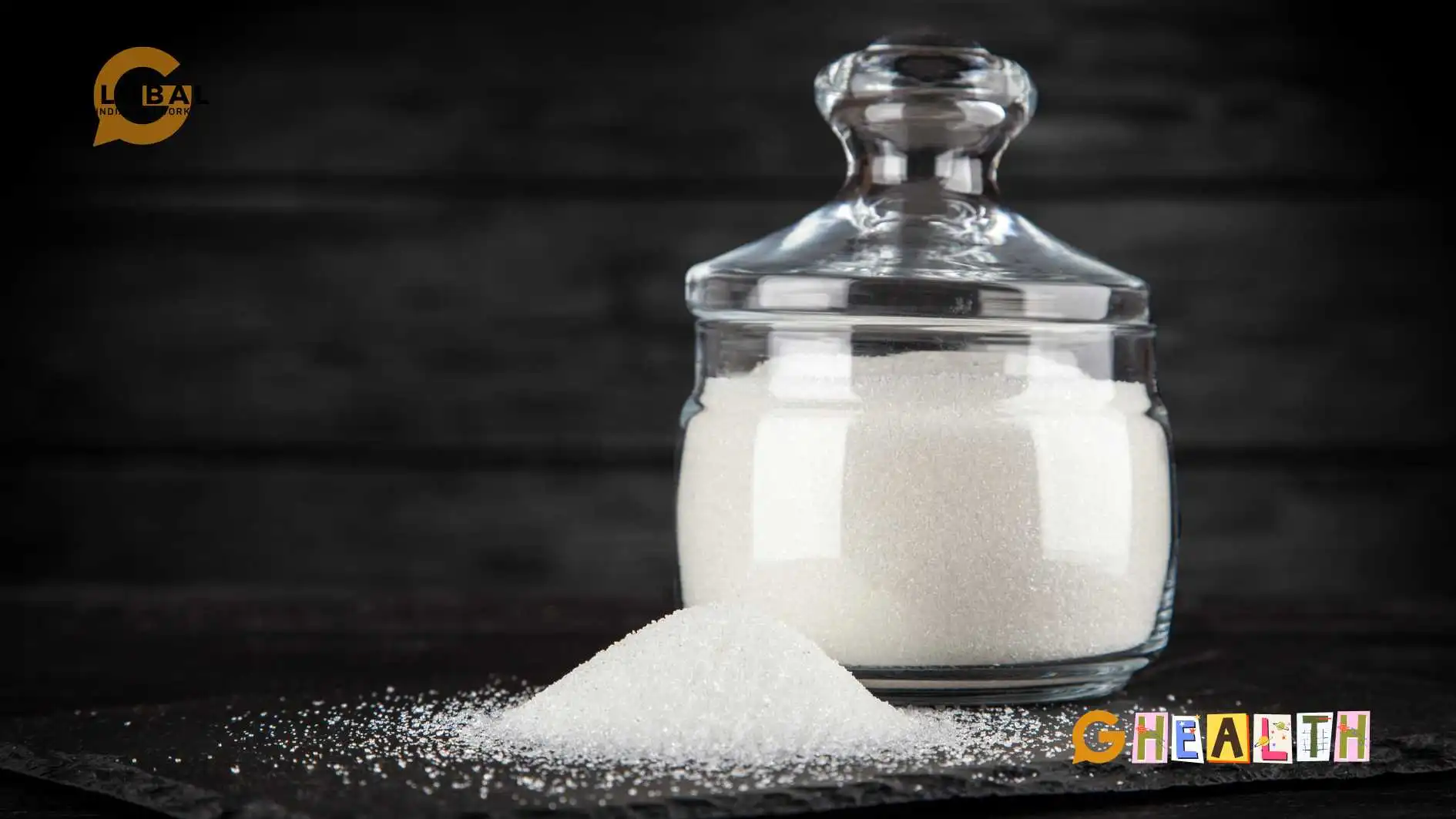Sugar has been a topic of extensive discussion in the context of health and nutrition. The effects of refined sugar on health are multifaceted, with both potential benefits and drawbacks. Whether we know it or not, sugar has an all-pervasive presence in the food and drinks we consume daily, with refined sugars prevalent in most processed foods. Understanding the impact of refined sugar on health is crucial for making informed dietary choices and maintaining a healthy lifestyle.
So what is refined sugar, how is it made, and what are its properties? This article will answer all the questions, uncovering all its benefits, health effects, and practical tips for managing intake.
Table of Contents
Different Types of Sugar
Sugar, in its fundamental form, is a simple carbohydrate naturally present and produced in plants and dairy products. The body breaks down carbohydrates and converts them into simple sugars like glucose that fuel bodily and neural functions.
The different types of sugar can be classified into monosaccharides (simple sugars) and disaccharides.
Glucose, or dextrose, is the body's primary source of carbohydrate-based energy. It occurs naturally in a wide variety of foods, like fruits and vegetables, and is the most common form of sugar in plants.
Fructose, also known as 'fruit sugar', is another type of simple sugar commonly found in fruit, honey, some root vegetables, agave, and maple syrup. Fructose is the sweetest occurring sugar and is widely used as a sweetener in various manufactured beverages such as soft drinks.
Sucrose is a disaccharide made from a combination of glucose and fructose, often referred to as 'table sugar'. Extracted mainly from sugar cane and sugar beets, it is the source of refined sugar, most commonly used in beverages and food, both in domestic households and manufacturing.
Lactose, also known as 'milk sugar', is found in milk and is another disaccharide (double sugar) made from glucose and galactose units. It is the least sweet of all the sugars and is widely found in dairy products.

What is Refined Sugar?
While natural sugars are inherently present in plants and dairy products, refined sugars are often heavily processed. They serve multiple purposes in food, from flavour enhancement to acting as a preservative in certain products like pasta sauce, salad dressing and jams to prolong shelf life. Additionally, they are used to ferment foods such as pickles and bread and add volume to processed foods like soft drinks and ice cream.
Refined sugar is derived from plant sources with raw sugar content, such as cane sugar or beets, which are processed at a sugar mill where the sugary juices are extracted, boiled, evaporated, and spun under centrifuge until crystallised. The crystals are spun until liquid and molasses, rich in colour, minerals, and vitamins, have been completely removed, forming lighter crystalline raw sugars.
The lightest among these sugar crystals are subsequently transported to white sugar refineries, where they undergo further melting, re-spinning, and filtration to yield white refined sugar. This refining process removes impurities and surrounding plant matter, leaving only pure sucrose. The leftover materials from sugar processing, such as cane fibre (bagasse), are often recycled and reused, for example, to generate electricity for sugar mills and their surrounding communities.
Refined Sugar vs. Unrefined Sugar
Unrefined sugar in its natural state includes molasses and natural sugars from fruits like coconut or dates. These sugars have a higher water content and, therefore, release energy slightly less rapidly than refined sugar.
They come straight from the freshly harvested cane and are then refined to varying degrees, retaining most of the original cane molasses. This includes traditional brown sugars such as brown rice syrup, coconut sugar, fruits and date sugar muscovado, panela, jaggery, honey, maple syrup, and agave nectar.
In contrast, refined sugars are extensively processed and purified sweeteners derived from unrefined raw sugars. They are not directly obtained from freshly harvested sugarcane; they undergo thorough processing and purification procedures to eliminate impurities. Among the common types of refined sugar are palm sugar, high-fructose corn syrup (derived from corn starch), and granulated sugar.

Health Effects of Refined Sugar
Refined sugars are often added to foods and beverages to enhance taste, but they are considered empty calories as they provide virtually no vitamins, minerals, protein, fat, fibre, or other beneficial compounds. These sugars are commonly found in heavily processed packaged foods and drinks, such as energy drinks, cereal bars, breakfast cereals, pastries, and soda.
In addition to being low in nutrients, these processed foods can be high in salt and added fats, which can negatively impact health when consumed in large quantities.
The World Health Organization advises limiting added sugars to no more than 10% of daily calories for general health, with an additional recommendation for lower consumption to 5% for added benefits. A 1,500-calorie diet translates to a maximum of 38 grams of sugar per day or half that amount for the 5% limit.
Uncontrolled and unmoderated consumption of refined sugar may lead to several health risks, including:
Cardiovascular disease: Consuming refined sugars can increase the risk of cardiovascular issues by negatively affecting blood lipid levels. High sugar intake, as shown in animal studies, can also increase the risk of heart attack and stroke by elevating blood pressure and causing potential damage to arteries. Reducing added sugar intake and opting for healthier alternatives, like fruits and vegetables, can lower the risk of heart disease.
Diabetes: Overconsumption of added sugar can result in insulin resistance, which may eventually lead to type 2 diabetes. High-sugar foods can prompt the body to release more insulin to absorb the sugar, potentially causing cells to become resistant to insulin over time. Switching to natural sources of sugar like whole grains, fruits, and vegetables can help stabilise blood sugar levels and reduce the risk of diabetes.
Weight gain: Foods high in added sugar can lead to excessive calorie intake, potentially resulting in weight gain over time. Opting for healthier alternatives like nuts, seeds, and lean proteins can provide a sense of fullness and satisfaction without consuming excess calories.
Fatty liver: Excessive sugar consumption can overwhelm the liver, leading to the storage of excess sugar as fat. This can contribute to the development of Non-alcoholic fatty liver disease (NAFLD), causing inflammation, liver damage, and other health issues. Reducing refined sugar intake and choosing healthier options like whole foods and healthy fats can help maintain liver health.
Risk of Cancer: Refined sugar, including high fructose corn syrup, is linked to the development of certain types of cancer due to its ability to cause significant insulin spikes and provide an optimal environment for cancer cell growth. To combat cancer, oncologists are now exploring the use of diabetes medication. Additionally, most sugar in the US is derived from genetically modified sugar beets.

How to Reduce Refined Sugar Consumption?
It is important to be mindful of the potential health risks associated with added sugar consumption and make informed dietary choices to manage sugar intake effectively. Following are some tips for managing daily sugar intake:
Read Labels: Sugar is called many different names. Hence, it is important to read the ingredients list on food labels. Ingredients such as agave nectar, corn sweetener, evaporated cane juice, fruit juice concentrates, honey, molasses, and raw sugar are all examples to watch out for. To identify added sugars, pay attention to terms ending in "-ose" and phrases containing "syrup" or "malt."
Be aware of refined carbohydrates: Refined carbohydrates, also known as simple carbs, contain doses of refined sugar. Common examples of refined carbohydrates include white flour, bread, pasta, biscuits, and numerous cereals. Replace them with healthier options such as whole grains, fruits, starchy vegetables, and legumes to control the sugar intake in your diet.
Reduce consumption of sugar-sweetened drinks: Most beverages on the market are sugar-laden with minimal nutritional value. This includes soft drinks, cordials, fruit drinks, vitamin waters, and energy and sports drinks. Choosing healthier options like plain water, soda water, or mineral water can be a wise strategy to cut down on sugar consumption.
Choose natural sources of sweetness: Satisfy sugar cravings with foods that contain naturally occurring sugars, such as fruit like strawberries, melons, dates, grapes, apples, vegetables, and nuts. Sugars in fruit are typically accompanied by additional nutrients like antioxidants, vitamins, minerals, and fibres, which help control blood sugar spikes and are absent in artificial sweeteners.

Conclusion
In conclusion, while understanding what is refined sugar, it is not imperative to completely eliminate it from our diet when it is all about moderation and finding the right balance. It is crucial to be aware of refined sugar sources and limits to make informed dietary decisions and manage sugar intake effectively.
Refined sugars can sneak into our diets in unseen ways, but being mindful of our choices can make a difference. From reading labels to opting for natural alternatives to satisfy sugar cravings, small changes can add up to a healthier lifestyle. So, let's take it one step at a time and make informed decisions about our sugar intake. After all, a little sweetness can go a long way in improving overall human health and well-being.
FAQs
What are examples of refined sugars?
Refined sugars are those which undergo high levels of processing to transform into traditional forms of sweeteners. Examples include white sugar, brown sugar, coconut sugar, palm sugar, and high-fructose corn syrup.
Is refined sugar harmful?
While refined sugar is widely prevalent in major foods, it can be harmful to human health when consumed without moderation. For example, multiple studies have linked consuming added sugar to a higher risk of obesity, diabetes, and unhealthy blood triglyceride levels.
What is the difference between sugar and refined sugar?
The difference between sugar and refined sugar lies in their processing and source. Natural sugar is found in fruits and other natural foods like honey, which contain essential nutrients and are digested more slowly, leading to a stable metabolism. On the other hand, refined sugar from sugar cane or sugar beets is a pure form of sugar, highly processed to remove additional nutrients. Widely present in packaged food and drinks, the body breaks down refined sugar rapidly, often causing insulin and blood sugar spikes.









